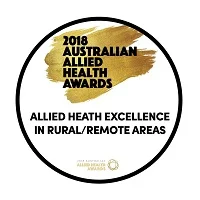Experience, Evidence, Ethics.
I was first registered in 1982, and have been continuously in practice ever since. Over the years I have taken care of people in a wide variety of settings from large multi-practitioner, multi-disciplinary clinics to solo practice, from metropolitan to rural and remote communities. In 2015 I completed a Master of Public Health postgraduate degree at the University of WA and have co-authored over 40 scientific papers and several book chapters about chiropractic education and clinical practice.
I was involved in several research projects including; reporting on the research priorities held among Australian chiropractors and academics; workers compensation and rights; Indigenous, rural and remote health; social justice and sustainability.
Until early 2018, I served on the board of directors and as Vice-President of the WA branch of the Chiropractors Association of Australia and as a member of the Australian Chiropractic Research Network (ACORN) committee affiliated with University of Technology Sydney.
Contact
➤ LOCATION
Suite 6/401 Oxford St
MT HAWTHORN WA 6016
☎
0429209255 mobile (preferred)
94445109 Landline
Consulting times
Tuesday afternoons 2:00pm-6:00pm
Saturday mornings 8:30 - 12:00 noon
Other times by appointment only
Email: thechiro at iinet dot net dot au
As non-pharmacological, non-surgical spinal care...
Chiropractic makes sense.
Low Back Pain
Overall, studies have shown that spinal manipulation as usually provided by chiropractors is an important option—that can provide relief from low-back pain.
Researchers are currently investigating whether the effects of spinal manipulation depend on the length and frequency of treatment. In one study funded by NCCIH that examined long-term effects in more than 600 people with low-back pain, results suggested that chiropractic care involving spinal manipulation was at least as effective as conventional medical care for up to 18 months.
Source: NIH
Maintenance Care
A paper presented at the European Chiropractors’ Union (ECU) convention in Cyprus in 2017 underscores the advantages of regular chiropractic care. The multi-center, randomized clinical trial was conducted in Sweden, with patients provided with either treatment at regular intervals, regardless of symptoms (Maintenance Care-MC), or symptomatic treatment whereby patients were treated only when consulting for pain.
The findings have subsequently been published in the prestigious journal PLOS-one
Three hundred and twenty-eight subjects were randomly allocated to one of the two treatment groups.
"The MC group consisted of 163 subjects who reported 12.8 fewer days with bothersome LBP over the 12 month follow-up compared to the 154 subjects in the control group. The take home message was that just 2 extra visits while asymptomatic provided an average of nearly 13 extra pain free days per year.
Reference:
Neck Pain
A 2014 evidence-based guideline (1) made the following recommendations:
• For acute neck pain, a recommendation was made for SMT as a treatment for both short- and long-term improvements in pain and number of days to recover.
• For chronic neck pain, SMT was also recommended as a treatment option benefiting pain and disability using 2 sessions per week for 9 weeks.
A 2013 evidence-based guideline (2) from the Italian Society of Physical and Rehabilitation Medicine recommended, SMT for non-specific acute and chronic neck pain
References
1. Bryans R, Decina P, Descarreaux M, Duranleau M, Marcoux H, Potter B, et al. Evidence-based guidelines for the chiropractic treatment of adults with neck pain. J Manipulative Physiol Ther. 2014;37:42-63.
2. Monticone M, Iovine R, de SG, Rovere G, Uliano D, Arioli G, et al. The Italian Society of Physical and Rehabilitation Medicine (SIMFER) recommendations for neck pain. G Ital Med Lav Ergon. 2013;35:36-50.
Cost effectiveness
Economic evaluation conducted alongside randomised controlled trials investigating treatments for LBP endorsed by the guidelines of the American College of Physicians and the American Pain Society found evidence supporting the cost-effectiveness of spinal manipulation for sub-acute or chronic LBP.
Reference
SAFETY
Safety remains an important focus of ongoing research:
A 2007 study of treatment outcomes for 19,722 chiropractic patients in the United Kingdom concluded that while minor side effects (such as temporary soreness) after cervical spine manipulation were relatively common, the risk of a serious adverse event was “low to very low”.
Source: National Center for Complementary and Integrative Health
Headaches
Primary headaches are a common ailment, with a point prevalence in the general population of about 16%. Epidemiological studies report that 5% of adults suffer from headaches on a daily basis; in the USA approximately 7 million adults report suffering from headaches every other day. Three types of headaches have been shown to account for the majority of these episodes: migraine, tension-type, and cervicogenic. The impact on quality-of-life can be comparable to patients with heart disease. In terms of the financial burden, it has been estimated that headaches account for 157 million days per year lost from work, costing US society approximately $50 billion in absenteeism and medical benefits.
Randomised trials have shown clinically important differences in favour of spinal manipulation for some types of headaches.
References
Education
Chiro @Murdoch University
The Murdoch course is a 5 year double Bachelor’s degree. Students complete a Bachelor of Science, preparing them in the human biological sciences and introductory chiropractic units, over three years. They then progress onto the second degree, the Bachelor of Clinical Chiropractic, which takes two more years. They need to complete both degrees to be eligible for registration and clinical practice. Part-time enrolment is available. With a degree accredited by the Council on Chiropractic Education Australasia (CCEA), graduates are eligible for registration in Australia, New Zealand and many other parts of the world. For further admission information about this course, please download the Information Pack.
Source: Murdoch University
In Australasia Chiropractic courses are also available at CQU, Macquarie and RMIT universities and New Zealand Chiropractic College
What is the value of evidence in clinical practice?
“For the clinician, evidence that is without productive, practical clinical application is essentially irrelevant, since translation into practice to improve practice, is the significance the clinician ascribes to evidence. Thus, in effect, theory is the knowledge; clinical practice is the ability to apply that knowledge to help people. Theory without practice is of little value since practice is the proof of theory”.
—Lyndon Amorin-Woods (2018)
Winner 2018 Australian Allied Health Awards Excellence in Rural/Remote Areas


